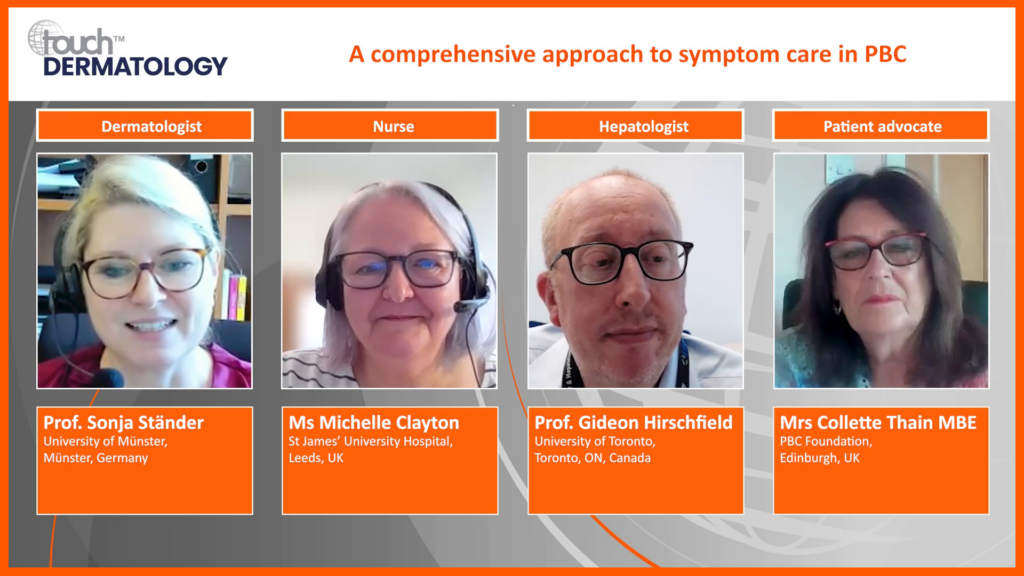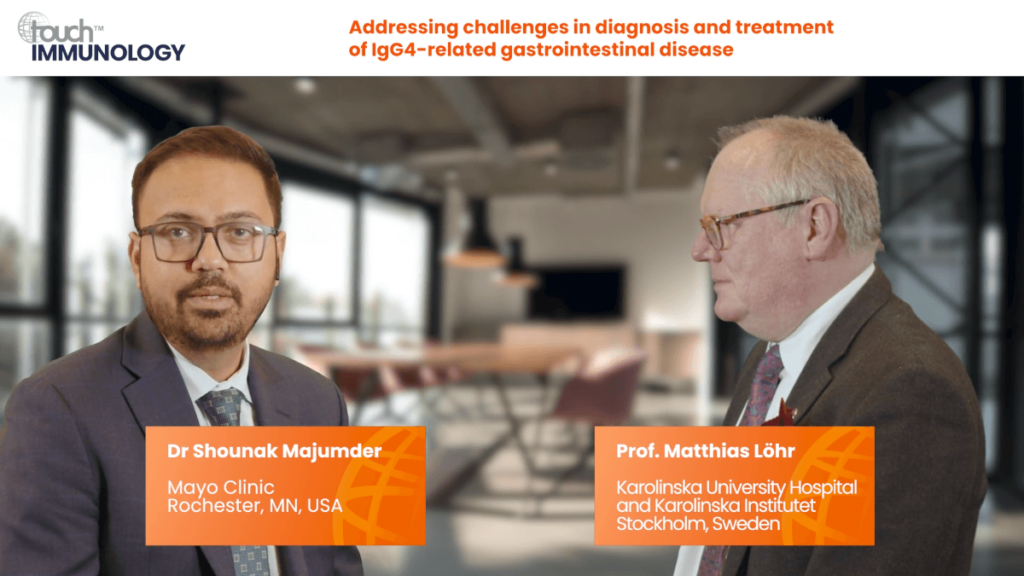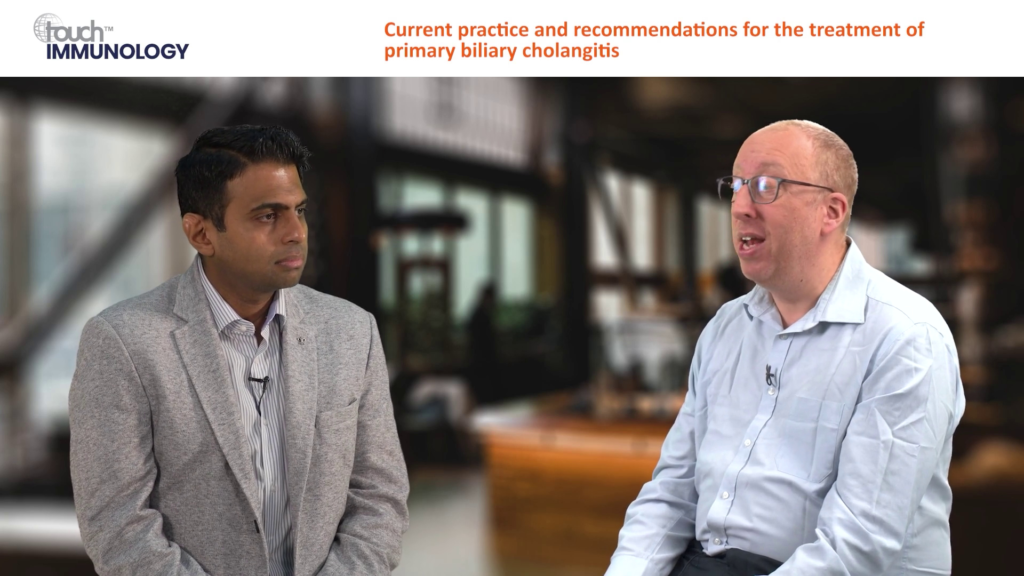Rare Autoimmune Diseases
An Introduction to Rare Autoimmune Diseases
Rare autoimmune diseases are a heterogeneous group of conditions that are challenging for both clinician and patient as they are difficult to diagnose and there is a lack of knowledge of individual conditions. Many such conditions exist; some of the most well characterised include eosinophilic granulomatosis with polyangiitis, Guillain-Barre syndrome, Kawasaki disease, mixed connective tissue disease, myasthenia gravis, myositis, paroxysmal nocturnal haemoglobinuria, POEMS syndrome, retroperitoneal fibrosis, scleroderma and thyroid eye disease. A further challenge is the lack of approved therapies. Advances in understanding of the molecular, immunological and genetic basis of autoimmune diseases has elucidated novel therapeutic approaches, but many knowledge gaps remain.
Expert video highlights and insights from the conference hub and comprehensive peer-reviewed articles from our journal portfolio provide updates on the changing treatment landscape. To learn more about how the latest developments impact on patient outcomes view our expert-led learning activities.
Our supporting partners do not constitute an endorsement of the content on this page.

This narrative article aims to inspire confidence and courage to initiate the incremental process of developing myositis or other RD clinics.

Physician burnout is at a critical point. In this episode, Nicky speaks with Dr Alfred Atanda about why so many physicians are burning out and what can be done to change the trend. From personal experience to system-wide solutions, Dr Atanda shares valuable insights on improving physician well-being and building a more effective healthcare culture.

In this episode, we explore the future of continuing medical education (CME) with the team behind touchIME. Hannah Fisher and Matthew Goodwin share insights into global and US trends, the importance of patient inclusivity and how educational outcomes are evolving to better measure the direct impact of learning on clinical practice and patient care.

Recent advancements made in understanding the pathology of inflammatory skin conditions have enabled JAK inhibitors, initially developed for haematology over 20 years ago, to be investigated for dermatological use. In this episode, Dr William (Bill) Damsky discusses JAK inhibitors’ journey from proof-of-concept to treating a wide range of skin conditions, their future impact on rare diseases and the debate around safety.

Dr Mitchell L Shiffman explores the current and future management of primary biliary cholangitis



IgG4-RD is a rare, chronic, relapsing condition characterized by fibroinflammatory lesions rich in CD19+ B cells, which can damage multiple organ systems and lead to organ failure.1 With no approved therapies, glucocorticoids are the primary treatment, but their long-term use is associated with adverse effects and inadequate disease control.1

A multidisciplinary team and a patient advocate discuss the management of cholestatic pruritus in primary biliary cholangitis (PBC).







Watch expert faculty discuss how to diagnose and treat the gastrointestinal manifestations of IgG4-related disease







Watch two specialists in autoimmune liver disease discuss best practice in the management of primary biliary cholangitis, including assessing emerging therapies and personalization of care.





touchIMMUNOLOGY caught up with Dr Emanuel Della Torre (Università Vita-Salute San Raffaele Unit of Immunology, Rheumatology, Allergy, and Rare Diseases, Ospedale San Raffael, Milan, Italy) to discuss the current and future treatment of immunoglobulin G4-related (IgG4) diseases. His presentation ...
Latest articles videos and clinical updates - straight to your inbox
Log into your Touch Account
Earn and track your CME credits on the go, save articles for later, and follow the latest congress coverage.
Register now for FREE Access
Register for free to hear about the latest expert-led education, peer-reviewed articles, conference highlights, and innovative CME activities.
Sign up with an Email
Or use a Social Account.
This Functionality is for
Members Only
Explore the latest in medical education and stay current in your field. Create a free account to track your learning.






